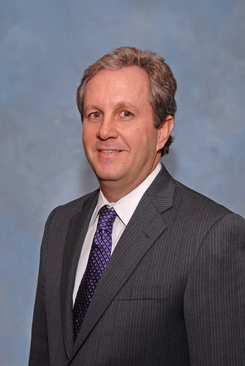Connecticut's 7 Trickiest Bar Rules Tripped Up Hundreds of Lawyers
An analysis of data from the Connecticut Office of Chief Disciplinary Counsel revealed "the Maleficent 7": the bar rules that tripped up the most lawyers between January 2014 and August 2019.
September 23, 2019 at 12:02 PM
5 minute read
 Statistics show a myriad of legal ethics pitfalls in Connecticut, but seven repeat most frequently. Photo: Lightspring/Shutterstock.com
Statistics show a myriad of legal ethics pitfalls in Connecticut, but seven repeat most frequently. Photo: Lightspring/Shutterstock.com
While Connecticut attorneys found a multitude of ways to end up in ethical hot water between January 2014 and August 2019, some bar rules proved trickier than others.
 Click here to read special report
Click here to read special reportSeven rules were akin to land mines, accounting for more than 1,800 alleged violations in the roughly five-year period.
The most evoked rule in grievance complaints was Rule 8.4, governing attorney misconduct, which appeared in 453 charges.
 Andrew Berman, a partner at Young, Berman, Karpf & Gonzalez/courtesy photo
Andrew Berman, a partner at Young, Berman, Karpf & Gonzalez/courtesy photoThe rule has a storied past, including a test of its constitutionality in a case that reached the U.S. Court of Appeals for the Second Circuit. The challenger, attorney Mark Villeneuve, was suspended and later disbarred after the Connecticut Workers' Compensation Commission, where he interviewed for a staff attorney position, discovered lies on his resume. Villeneuve later sued state and federal defendants, challenging the facial constitutionality of Rules 8.4(3) and 8.4(4) under the First and Fifth Amendments. But the court disagreed, finding both rules "pass constitutional muster."
Safekeeping property violations under Rule 1.15 appeared more than 300 times, while nearly 200 fee disputes resulted in ethics cases.
Not keeping in touch with clients—a violation of Rule 1.4—was a major stumbling block for attorneys, cropping up on 315 occasions.
"There's no reason to have communication issues today if you're alive and in good physical and mental condition, because it doesn't take much to just push a button and forward something," said Andrew Berman , a Young, Berman, Karpf & Gonzalez partner in Miami who represents clients in high-profile bar discipline cases and who has given lectures on ethical pitfalls for attorneys.
Since Berman started practicing law before the proliferation of cellphones, he's noticed clients now expect faster and more frequent communication. But it's also a lot easier to meet those demands, because attorneys can often forward every piece of electronic correspondence straight to their clients.
Surprising leader
Ethics and white-collar defense attorney Brian Tannebaum said that while most attorneys assume trust account violations make up the bulk of lawyer-discipline cases, communication issues are way more common, while violations involving diligence—or the failure to work on a case—are cropping up more and more.
 Brian L. Tannebaum, special counsel with Bast Amron/courtesy photo
Brian L. Tannebaum, special counsel with Bast Amron/courtesy photoIt takes two ingredients to concoct the perfect recipe for a communication or diligence complaint, according to Tannebaum: clients with very high expectations and lawyers who don't explain things properly. He says that's because both sides typically have radically different experiences and expectations of the legal system.
"Most people only get divorced once, they only get arrested once, they only get a traffic ticket every once in a while. So for them, this is like the only time they're going to go to a lawyer, so they don't know how it all works," said Tannebaum, special counsel to Bast Amron and former vice chairman of the Florida Bar Grievance Committee. "I know how it works. I know that you're gong to hire me and, generally, maybe nothing's going to happen for a while. Because we're going to investigate, then we're going to file something, then we're going to wait for a court date. Things take a long time."
When lawyers don't explain that, though, Tannebaum says clients might assume their attorney is working on their case every day, and can be surprised to hear that their representative isn't in the office when they call, as they're in court on another matter.
For that reason, Tannebaum said he manages expectations from the get-go.
"I tell clients this all the time, 'You can call me every day and ask me what's going on in your case. But I can tell you, when something's going on in your case, I'm going to call you.' And a lot of clients are like, 'OK, I understand that. Thank you for telling me, then I'm not just sitting here wondering what's going on.'"
Another pitfall: rules governing client confidentiality and attorney conflicts of interest, which led to prosecutions in nearly 100 cases, according to the Connecticut Law Tribune review of disciplinary proceedings.
The rules are clear, Berman says, that attorneys can't take on a case where their knowledge of a former client and its business could in any way negatively affect them.
But Berman, who now defends respondents facing discipline, has seen plenty of lawyers prioritize fees over client confidences by telling themselves, "There's no problem, I didn't learn anything that's particularly damaging to that client."
Illustration by David Palmer.
Read more:
'They Can't Get Out of Bed': The Mental-Health Specter in Attorney-Discipline Cases
What Experts Want Lawyers to Know About Attorney-Ethics Charges
Corey Brinson's Long Road Back: Disgraced Lawyer's Quest for Redemptive Life
This content has been archived. It is available through our partners, LexisNexis® and Bloomberg Law.
To view this content, please continue to their sites.
Not a Lexis Subscriber?
Subscribe Now
Not a Bloomberg Law Subscriber?
Subscribe Now
NOT FOR REPRINT
© 2025 ALM Global, LLC, All Rights Reserved. Request academic re-use from www.copyright.com. All other uses, submit a request to [email protected]. For more information visit Asset & Logo Licensing.
You Might Like
View All
Wild Wild ... East—900 Connecticut Attorneys Faced Discipline in Last 5 Years
3 minute read
Corey Brinson's Long Road Back: Disgraced Lawyer's Quest for Redemptive Life
7 minute read
'Sociopaths and Lawyers': Former Disciplinarian Offers Tips to Attorneys
5 minute read
'They Can't Get Out of Bed': The Mental-Health Specter in Attorney-Discipline Cases
Trending Stories
- 1Dissenter Blasts 4th Circuit Majority Decision Upholding Meta's Section 230 Defense
- 2NBA Players Association Finds Its New GC in Warriors Front Office
- 3Prenuptial Agreement Spousal Support Waivers: Proceed With Caution
- 4DC Circuit Keeps Docs in Judge Newman's Misconduct Proceedings Sealed
- 5Litigators of the Week: US Soccer and MLS Fend Off Claims They Conspired to Scuttle Rival League’s Prospect
Who Got The Work
J. Brugh Lower of Gibbons has entered an appearance for industrial equipment supplier Devco Corporation in a pending trademark infringement lawsuit. The suit, accusing the defendant of selling knock-off Graco products, was filed Dec. 18 in New Jersey District Court by Rivkin Radler on behalf of Graco Inc. and Graco Minnesota. The case, assigned to U.S. District Judge Zahid N. Quraishi, is 3:24-cv-11294, Graco Inc. et al v. Devco Corporation.
Who Got The Work
Rebecca Maller-Stein and Kent A. Yalowitz of Arnold & Porter Kaye Scholer have entered their appearances for Hanaco Venture Capital and its executives, Lior Prosor and David Frankel, in a pending securities lawsuit. The action, filed on Dec. 24 in New York Southern District Court by Zell, Aron & Co. on behalf of Goldeneye Advisors, accuses the defendants of negligently and fraudulently managing the plaintiff's $1 million investment. The case, assigned to U.S. District Judge Vernon S. Broderick, is 1:24-cv-09918, Goldeneye Advisors, LLC v. Hanaco Venture Capital, Ltd. et al.
Who Got The Work
Attorneys from A&O Shearman has stepped in as defense counsel for Toronto-Dominion Bank and other defendants in a pending securities class action. The suit, filed Dec. 11 in New York Southern District Court by Bleichmar Fonti & Auld, accuses the defendants of concealing the bank's 'pervasive' deficiencies in regards to its compliance with the Bank Secrecy Act and the quality of its anti-money laundering controls. The case, assigned to U.S. District Judge Arun Subramanian, is 1:24-cv-09445, Gonzalez v. The Toronto-Dominion Bank et al.
Who Got The Work
Crown Castle International, a Pennsylvania company providing shared communications infrastructure, has turned to Luke D. Wolf of Gordon Rees Scully Mansukhani to fend off a pending breach-of-contract lawsuit. The court action, filed Nov. 25 in Michigan Eastern District Court by Hooper Hathaway PC on behalf of The Town Residences LLC, accuses Crown Castle of failing to transfer approximately $30,000 in utility payments from T-Mobile in breach of a roof-top lease and assignment agreement. The case, assigned to U.S. District Judge Susan K. Declercq, is 2:24-cv-13131, The Town Residences LLC v. T-Mobile US, Inc. et al.
Who Got The Work
Wilfred P. Coronato and Daniel M. Schwartz of McCarter & English have stepped in as defense counsel to Electrolux Home Products Inc. in a pending product liability lawsuit. The court action, filed Nov. 26 in New York Eastern District Court by Poulos Lopiccolo PC and Nagel Rice LLP on behalf of David Stern, alleges that the defendant's refrigerators’ drawers and shelving repeatedly break and fall apart within months after purchase. The case, assigned to U.S. District Judge Joan M. Azrack, is 2:24-cv-08204, Stern v. Electrolux Home Products, Inc.
Featured Firms
Law Offices of Gary Martin Hays & Associates, P.C.
(470) 294-1674
Law Offices of Mark E. Salomone
(857) 444-6468
Smith & Hassler
(713) 739-1250










